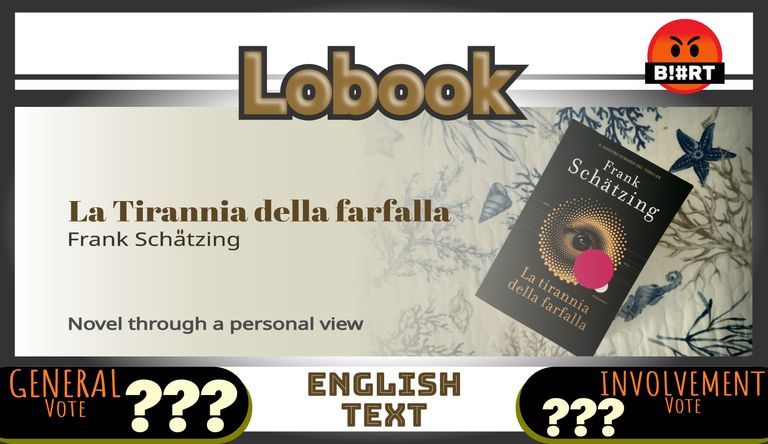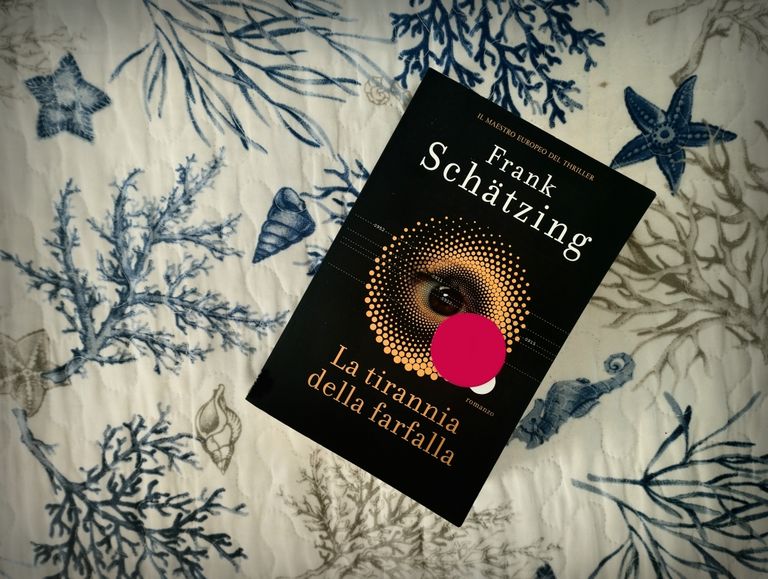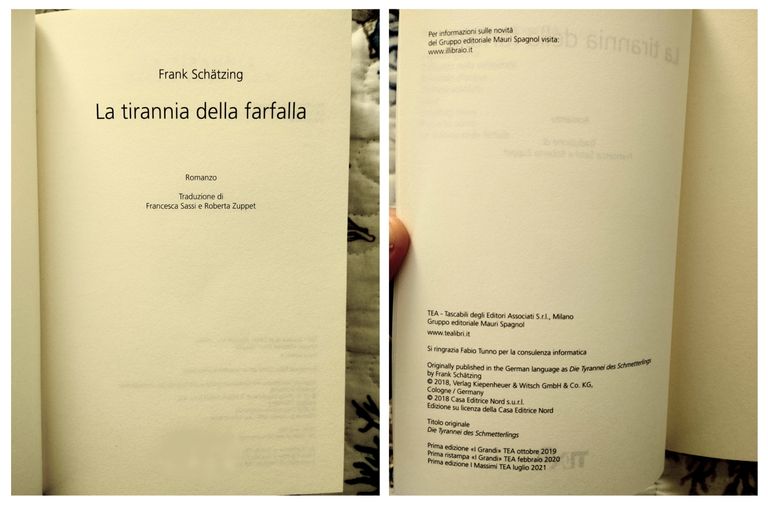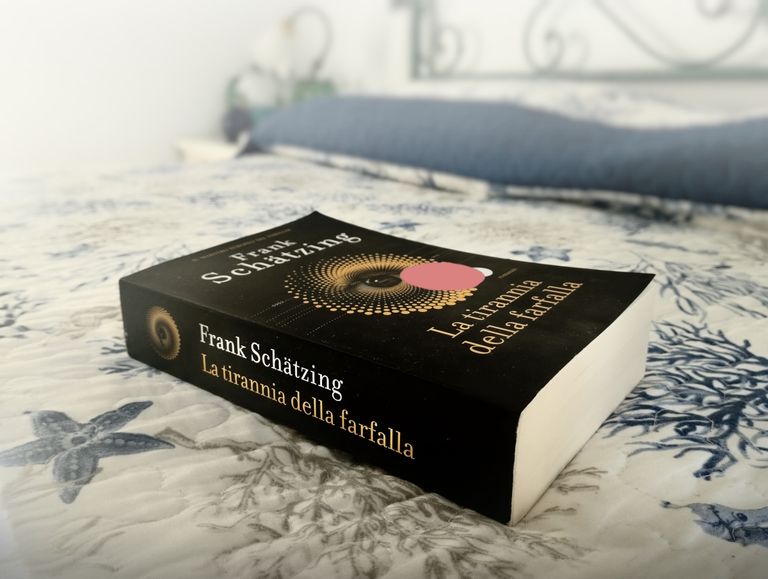Every use of the contents herein - and/or each derivative - is prohibited without the explicit consent of the author, except for dissemination without modification trough media and social media channels.
This post doesn't have a promotional purpose.

Hello!
Today I publish a post about my #lobook initiative. Here, I share my experience about a book, beginning from the buying and finishing with my personal review. You can read more about lobook, consulting my first Lobook post here on Blurt.
AND NOW, LET'S GO!
This new episode takes a cue from the Frank Schätzing's novel, published with the title Die Tyrannei des Schmetterlings (2018) (English version, The tyranny of the butterfly). The Italian translation I read is La tirannia della farfalla, curated by Francesca Sassi and Roberta Zuppet. The first publication in Italy dated back to 2018. In the image below, you can see a cover picture from which I removed a few parts, trying to avoid possible direct advertisings.

And below, some slices of the inner pages:

I bought the book a few months ago in paperback format. There are several editions with different prices, major for the hard-cover version and minor for the softcover one. Excluding various discounts applied (and instead considering only the official cover price) the price range with which I found the book at the moment varies approximately from €12.90 to €22.00. Here in Italy, we have also an e-book format for digital readers.

TURNING PAGES
Years earlier, he prepares for battle. He remains in ambush, ready to strike. The fate of those lands must change, and they will be the protagonists of that change. But something that shouldn't have been there hits him suddenly. Something no one has ever seen before.
Today, the daily life of a sheriff flows as usual, with a thousand commitments and misadventures. Until he gets involved in something that is beyond all comprehension, or so it appears. Instead, everything is connected, and he will notice.
It's not the first Schätzing's book I've read. Normally I appreciate them, but this one didn't convince me. Let's go step by step. I found the first part interesting: not full of events useful to create suspense, but enough to narrate what happens in an acceptable way. From the moment the plot comes to life, the storytelling style begins to play a fundamental role: you can follow it, or you can't. In my case, I failed. After the first part, as I move towards the end, the meditation moments described in a very abstract way increase, with a thousand and no possible meanings. In these moments I couldn't create an image of the situation described, and, in the long run, this led me to lose several portions of the novel. I also had the same problem due to the use of first-person meditations within the third-person story, without any sign that makes this passage understandable. I don't know if it's a mistake or if it was done on purpose, but I was forced to go back several times to understand where the narration ended and where the personal thought began within the same paragraph.
The plot (considered without any other element) could also be compelling, although it seemed to me not too original. It seemed to me this is a content very similar to the plots of films released in the last 20 years dealing with the theme of artificial intelligence, only rewritten and re-proposed in a different way using a book. The ending, written the way it was written - as much as I personally like it that way - reminded me too much of a handful of sci-fi movies I've seen lately (and which are not so recent). If the book had been conceived many years ago, my opinion of originality would change, but checking the year of publication confirmed my impression.
In my opinion, the novel isn't to be discarded, although not with a too original plot for those who know the genre starring artificial intelligence and the implications of its massive use. Let's say, however, that I think this novel isn't very suitable for readers who love a pragmatic narration, the dry one that perhaps uses narrative devices but never lets the imagination wander with sentences or meditations with a thousand possible interpretations. If, on the other hand, you like this type of narration, and you are perhaps new to the genre and the topics covered, there is no objection: I think it is worth reading. Unluckily, I am in the first category.

PERSONAL RATING
For my personal rating of the book, I usually use two votes: a GENERAL VOTE, based on a more objective approach to the text (where I consider for example the author's way of writing, the plot, any errors found, etc), and an INVOLVEMENT VOTE, based instead on the effect that reading had on me (if it attracted me, if it intrigued and tempted me, if it gave me useful information, etc.). Each of the two ratings is marked with a number of stars, from one to 5.
In the case of The tyranny of the butterfly, my personal response is 3 for the general vote and 2 for the involvement vote.

If this article has intrigued you, you can find info by searching on the web for news of the author, or contacting retailers in the books business sector. I greet you, and I hope my one is a useful opinion. I will periodically publish other posts of this kind. If you are interested in discovering new books – mainly novels – on the market, you can continue following me on the #lobook tag.
A greeting and to the next book!
